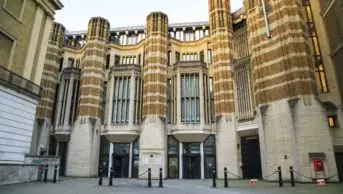
Shutterstock.com
Giving community pharmacists more power to dispense cheaper generic alternatives to branded medicines or cheaper drugs of greater therapeutic benefit could save the NHS millions of pounds and prevent the need for planned government cuts of £170m from the community pharmacy budget in England, according to national negotiators.
Allowing pharmacists to dispense urgent medicine supplies routinely to patients out of hours without the need for a prescription from a GP, or following a pharmacy referral via the NHS 111 service, could also save money and offset the proposed cuts for 2016 and beyond, the Pharmaceutical Services Negotiating Committee (PSNC) is suggesting.
The negotiators have released a list of counterproposals, which they claim would meet the government budget cuts that are now at the centre of their confidential negotiations with ministers.
The PSNC’s counter proposals include a move to reduce medicines waste where pharmacists would not dispense repeat prescriptions for medicines or appliances to patients in cases where, following discussion, both sides agreed that they already had sufficient current stocks of drugs or other medical products.
A national therapeutic substitution service linked to a specific list of medicines with options for cheaper and more clinically effective alternative products is also being discussed.
The PSNC, in its briefing paper, says the list should also include specials where alternative licensed products could be dispensed instead.
A similar national list of generic alternative drugs would also be drawn up as part of the PSNC’s plans, which it says could mirror a scheme running in Ireland since 2013.
Other proposals include a community pharmacy-led review of prescribing in care homes.
The paper makes it clear that negotiators also oppose government plans to bring in a new pay system linked to a single fee for each prescription item supplied.
The new system, says the PSNC, is a backward step because it would incentivise pharmacists to increase medicine supplies. The negotiators suggest instead an alternative payment system that rewards pharmacies providing more clinical services.

